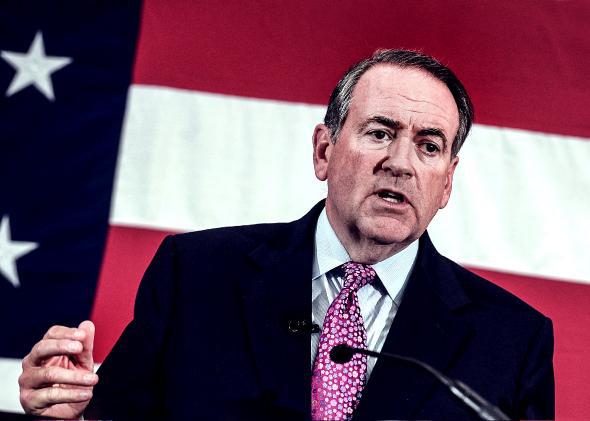President Obama’s speech following Thursday’s mass shooting at an Oregon community college was the most dumbfounded of his presidency. Over 12 minutes, he surveyed America’s absurd gun politics—in which an outspoken minority always gets its way over a numbed majority—and asked, exasperated: What the hell?
The president seemed grimly fascinated by how rote the process has become. He talked about how, “Earlier this year, I answered a question in an interview by saying, ‘The United States of America is the one advanced nation on Earth in which we do not have sufficient common-sense gun-safety laws—even in the face of repeated mass killings.’ ” He added—almost with a touch of dark humor—that “later that day, there was a mass shooting at a movie theater in Lafayette, Louisiana. That day!” He continued: “Somehow this has become routine. The reporting is routine. My response here at this podium ends up being routine. The conversation in the aftermath of it. We’ve become numb to this.”
Also routine, he acknowledged, was how rapidly the response from gun control critics would be. “Right now,” he noted, “I can imagine the press releases being cranked out: We need more guns, they’ll argue. Fewer gun safety laws. Does anybody really believe that?”
Indeed, many do.
The press releases Obama predicted required a bit more time, but the tweets did not. Here was Rep. Jeff Duncan, a Tea Partier from South Carolina, feeling comfortable enough not just to make the argument, but to do so with sarcasm and emojis.
Conservative personalities and gun activists echoed Duncan’s sentiments. It did not take long for them to pin the blame on “gun-free zones”—the worst of liberal do-gooders’ awful deeds—regardless of whether the Umpqua Community College campus was one such zone (it wasn’t). Presidential candidate Mike Huckabee quickly jumped on board that narrative:
The polling on gun laws is more mixed than either side of the debate would care to admit. A Pew Research Center survey conducted in July and reported in the Hill found that 88 percent of Americans “favor expanding background checks, up slightly from the 81 percent of Americans who supported the measure in May 2013.” The poll also found, though, that the public is largely polarized—and talking past one another, really—on the more fundamental views of gun ownership. “Currently, 50% say it is more important to control gun ownership, while 47% say it is more important to protect the right of Americans to own guns,” Pew wrote.
A 2014 Pew survey showed that more and more people are buying into the argument that more gun ownership is necessary to protect safety, too. “Nearly six-in-ten Americans (57%) say gun ownership does more to protect people from becoming victims of crime,” Pew found, “while 38% say it does more to endanger personal safety. In the days after Newtown, 48% said guns do more to protect people and 37% said they placed people at risk.” The percentage of Republicans who said “gun ownership does more to protect people from becoming victims of crime” jumped from 63 to 80 percent between December 2012 and December 2014.
These views aren’t necessarily in conflict. One might believe that more stringent federal background checks and other precautionary measures should be enacted to prevent the mentally ill from obtaining firearms while, at the same time, the rights of “everyone else” should remain unfettered. That may constitute a majority position that President Obama could work to push incremental change. But it’s a passive majority relative to the very vocal minority of gun rights activists who see any new gun control legislation as a slippery slope toward confiscation.
In our system of government, with its many veto points, a vocal minority will always beat a passive majority. Only a very small percentage of Americans consider gun control a major priority when considering how they’ll vote. The people who do strongly factor guns into their calculations are those who fear the government taking their guns away. When gun-control legislation is introduced on the federal level, gun rights activists, and organizations like the National Rifle Association, successfully mobilize to pressure lawmakers into stopping it.
President Obama acknowledged the vocal minority’s upper-hand advantage during his speech. He explained that a “change of politics” is needed on this issue: “It will require that the American people, individually, whether you are a Democrat or a Republican or an independent, when you decide to vote for somebody, are making a determination as to whether this cause of continuing death for innocent people should be a relevant factor in your decision.”
Correction, Oct. 2, 2015: This story’s headlines originally misspelled Roseburg, Oregon.
